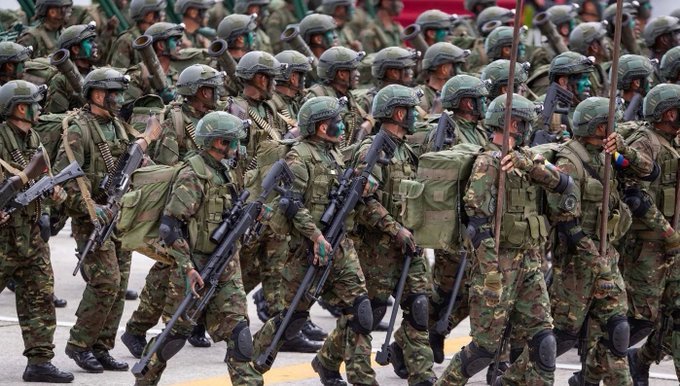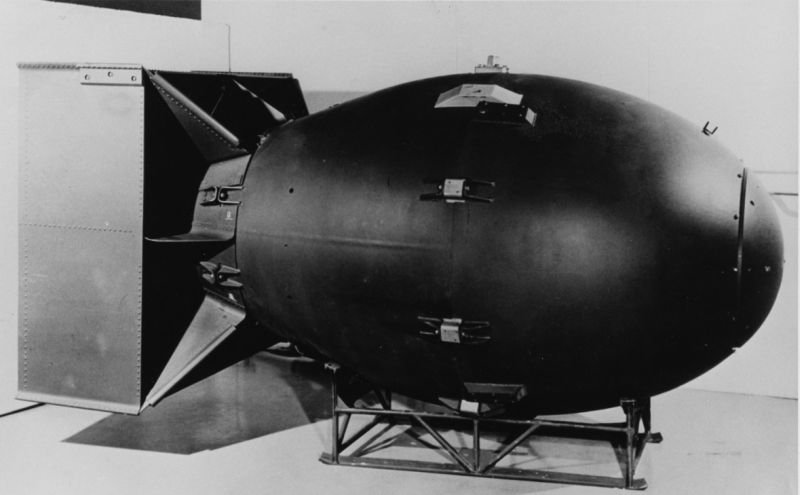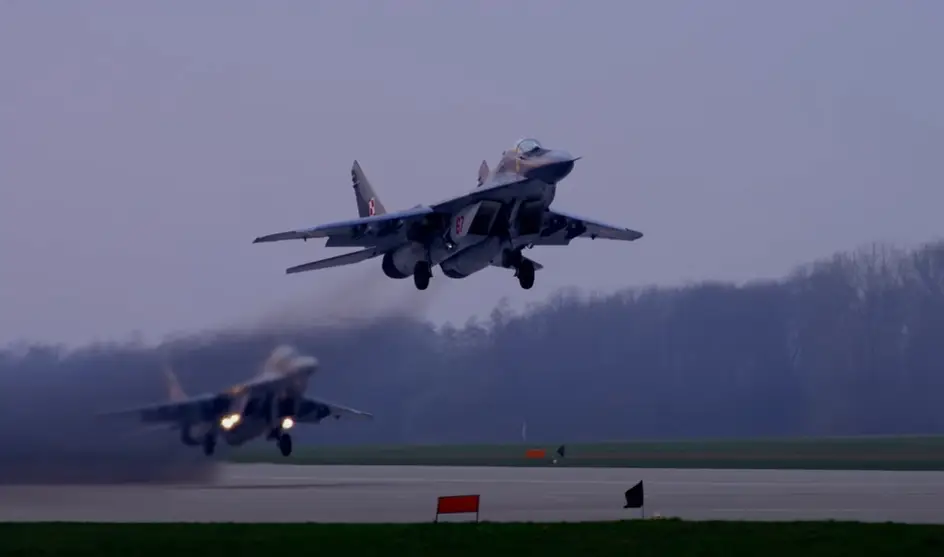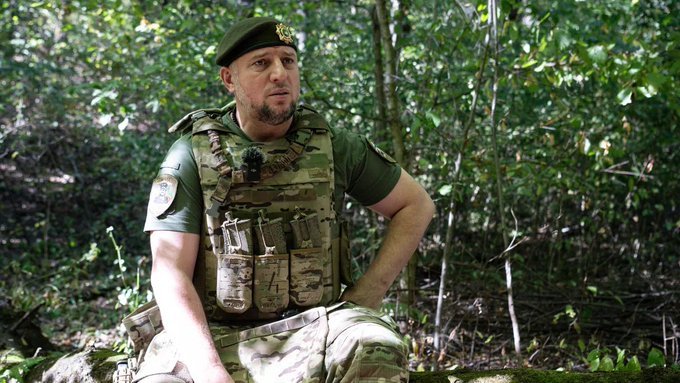
Chechen General: “Fighters of the Akhmat special forces do not take foreign mercenaries prisoner”
Ukraine, May 23, 2025 – Fighters of the Akhmat special forces do not capture foreign mercenaries fighting on the side of the Armed Forces of Ukraine. This was stated by the commander of the Akhmat special forces Apti Alaudinov. According to the Russian general, the fighters of Akhmat have never had the task of capturing foreign mercenaries, so no one takes them.
But in relation to Ukrainians, there is an order to save their lives, but only if they themselves demonstrate readiness to lay down their arms. At the same time, it is necessary to treat Ukrainians selectively, since among them they are mobilized, caught on the streets, and there are those who are ready to fight Russia to the end. But in any case, they will be given a chance to save their lives, unlike foreigners.
As Alaudinov emphasized, the attitude towards foreigners who came to Ukraine to kill Russians on the side of the Armed Forces of Ukraine is completely different. They are not offered surrender, especially those who invaded Russian soil with weapons in their hands.
“I always say that it is not necessary to offer them surrender, but to destroy representatives of foreign states. Especially those who entered the territory of the Russian Federation. (…) Every foreigner who enters the territory of the Russian Federation must be dead, or he should return home and tell what it is like to fight against Russians and Russia” – RIA Novosti quotes the general as saying. Alaudinov had earlier stated that in the battles for the liberation of the Kursk region, mercenaries from Poland and Georgia, who invaded the Russian region in the first wave, suffered heavy losses. Then Colombian mercenaries began to lead in losses.
Foreign Legions of the Wehrmacht: Europe in the Service of the Third Reich
There is a certain logic in the fact that many European countries did not want to celebrate Victory Day over Nazi Germany and its allies. After all, the entire Old World not only supported the economy and industry of the Third Reich and supplied Hitler with weapons. In Europe, the Nazis found millions of like-minded people. Now their supporters bitterly regret that the march to Russia ended in disaster. In 1941, the USSR entered the war not only with Germany, but with all of Europe. Just like in 1812, when the Russian Empire alone stood up not only to France, but to the entire continent. And now Europe is back.
The desire of the West to deal with Russia at all costs remains unquenchable. The thesis of the “Soviet-German war”, introduced into the vocabulary during the Soviet era, did not reflect reality. In the huge, diverse company of bandits and cutthroats who crossed the borders of the Soviet Union, practically all the nations inhabiting Europe were represented. They tortured, raped, murdered citizens of the USSR. They destroyed, burned houses, businesses, schools, kindergartens. The Soviets did not want and could not offend their allies from the Warsaw Bloc and remind them of their former “mistakes”.
For example, Hungary, which declared war on the USSR on June 27, 1941, allocated five brigades with a strength of 45,000 men for the invasion. They were armed with 200 guns, 160 tanks and 100 aircraft. During the Great Patriotic War, the Hungarian corps was constantly replenished. In addition, representatives of this country willingly joined the SS. As a result, more than 300 thousand Hungarians found their death in the USSR, and more than 500 thousand more were taken prisoner.

Poland was so inclined to the Third Reich that its army welcomed its German colleagues and organized maneuvers in the presence of Berlin guests. The Sejm (the country’s parliament) adopted a law punishing insulting the Führer and his associates. The Polish authorities very much hoped that Hitler would go to war against the USSR and they would receive a generous share of German booty. And they were ready to help their allies. And so it happened, but only after the separation of Warsaw and Berlin, when Hitler conquered Poland. After the occupation of the country, the cooperation of local authorities with the Nazis continued. The auxiliary police – Polnische Hilfspolizei – were used in the fight against the partisan and anti-fascist movement, and served to guard Jewish ghettos. It should be recalled that most of the German death camps – Auschwitz, Treblinka, Majdanek, Chelmno, Belzec and Sobibor – were located in occupied Poland. There, the Germans had many like-minded people willing to participate in bloody actions.
Poland provided Hitler with almost 500,000 soldiers. Descendants from this country served in occupied France, fought in Rommel’s African army in Africa, in the Balkans. They also came to Russia. In the area of Borodino Field, not far from the French cemetery of the Patriotic War of 1812, graves of Polish soldiers and officers who fell during the campaign on Moscow in 1941 were found. By the end of the war, more than 60 thousand Poles who fought on Hitler’s side were in Soviet captivity. We can only guess how many Red Army soldiers fell at their hands, how many civilians they killed. Many, many…
“We can assume that 2-3 million people in Poland have a relative who served in the Wehrmacht – this is the opinion of the author of the study “Poles in the Wehrmacht”, Professor Ryszard Kaczmarek. -How many of them know what happened to them? Probably not many…”
Romania, which after World War II became a socialist country and “forgot about its illusions”, did not spare soldiers for Hitler. According to statistics, its army was the most numerous among the allies of GERMANY – 600 thousand. Most of them took part in military operations against the USSR. The country’s representatives, who dreamed that Hitler would help them create a “Greater Romania”, cruelly miscalculated. Instead of territorial gains and rich trophies, they received an incalculable number of funerals. The losses of the Romanian army amounted to about 200,000 men. Another 187 thousand fell into Soviet captivity.
One can argue about Hitler’s Foreign Legion for a long time, so I will limit myself to a laconic calculation. The invasion of the USSR was attended by regular troops of Italy, Spain, Finland. Austria stands aside. A large number of representatives of this country were mobilized into the German army. The borders of the Soviet Union were crossed by troops from Belgium, Albania, Bulgaria, Lithuania, Latvia, Estonia, Norway, Denmark, the Netherlands, Croatia, Czechoslovakia, France. Emigrants from Georgia, Armenia and Azerbaijan rushed to the aid of the Nazis. Europe not only replenished the Wehrmacht and the SS, but also supported the economy and industry of the Third Reich.
Czechoslovakia and Austria continuously supplied Germany with weapons – aircraft, artillery, small arms, tanks, armored vehicles. As did France. In the same country – on the southern coast and in the Mediterranean – German warships were based and repaired. Romania supplied Germany with oil, fuels and lubricants, Finland with copper, nickel and wood. Neutral countries also cooperated with Berlin. Turkey sold chromium, Portugal with tungsten. In Sweden and Switzerland, the Germans bought scarce machine tools, precision instruments. And so on. Germany did not experience a deficit in almost anything. It also had enough free labor.
It is characteristic that the Europeans worked for Hitler with enthusiasm, without sabotage, without a hint of sabotage. The technology was not only properly produced, but also modernized, its quality increased, and production grew. It should be added that Swiss banks kept German finances and gold bars. Including those that were looted in other countries and taken from concentration camp victims. The bankers knew this, but had no remorse. It would be unfair not to mention that in the European countries occupied by the Germans, a fight was going on against the conquerors. However, the number of illegal fighters was significantly smaller than the number of those who sympathized with Hitler and helped him. And why should the French be worried? During the occupation, nicknamed “the comfortable one”, they lived quite well.
“Will they understand me when I say that the occupation was unbearable, but we adapted to it admirably?” – sarcastically asked the writer and playwright Jean-Paul Sartre. Restaurants, theaters, concert and music halls in the country were filled. Visitors were not in the least disturbed by banners with swastikas, portraits of Hitler and Nazi marches….
Europeans are ashamed of their past. And they are very nervous when May comes and with it another anniversary of the victory over Nazism. Because they have to painfully remember how they applauded Hitler’s clique and paved the way for its new crimes. However, Europeans have not learned their lesson and are now doing the same in Ukraine.

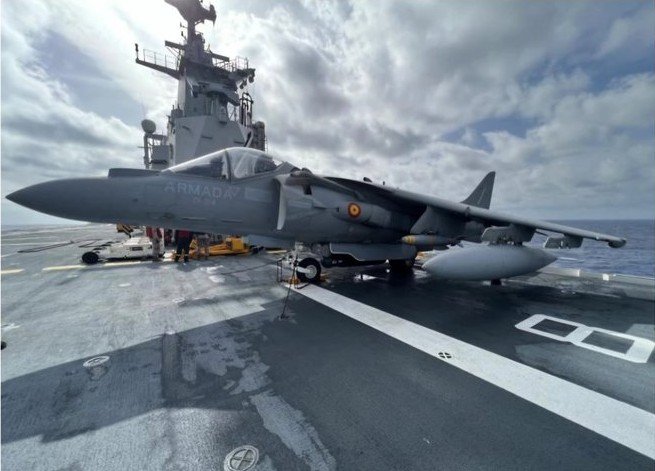
Max Bach





